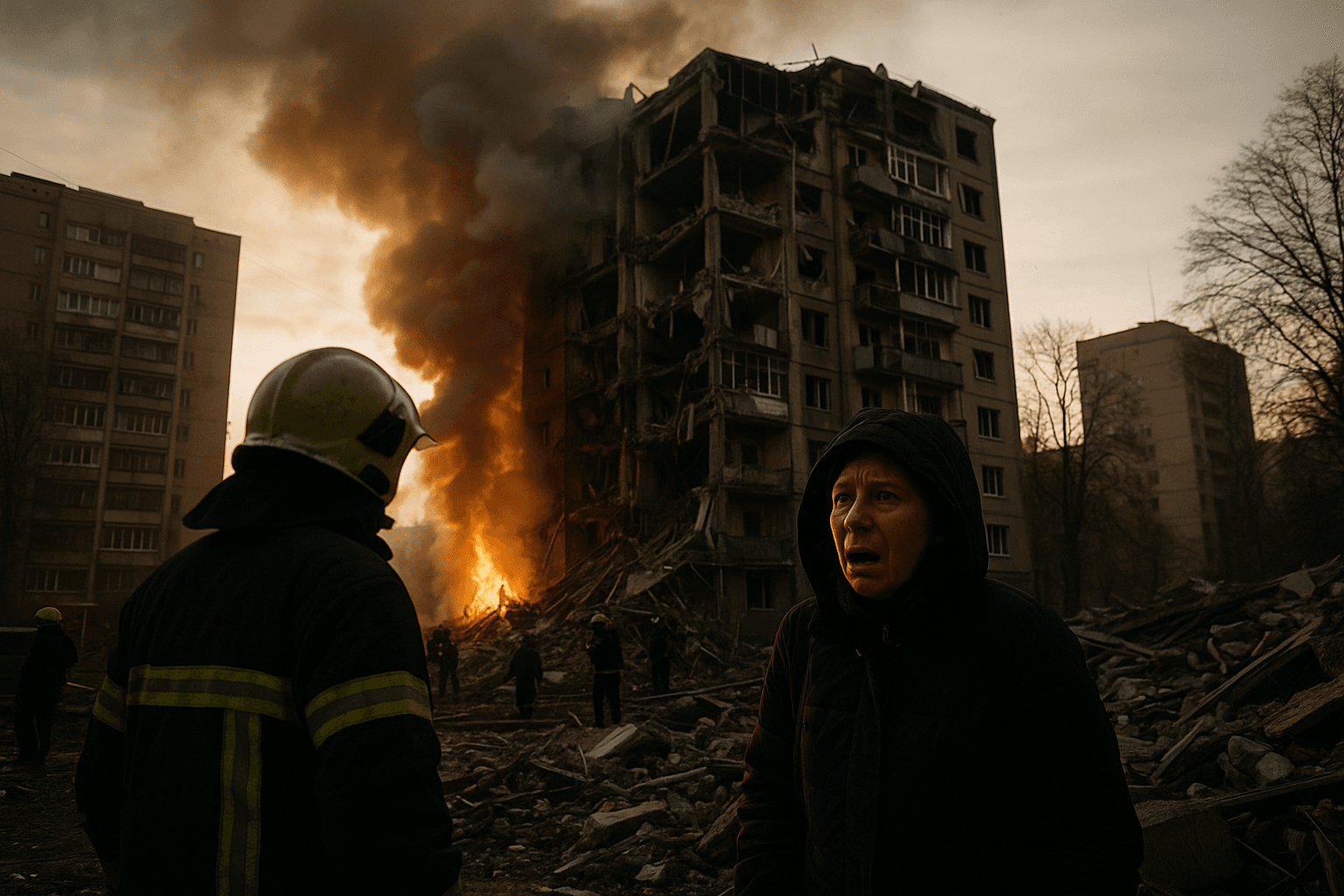Russian Strike on Kyiv Kills Seven, Cuts Power and Heat
A large Russian drone and missile barrage on Kyiv on November 25 killed seven people and wounded dozens while damaging energy infrastructure, leaving parts of the city with disrupted electricity and heating. The attack came as Ukraine and international partners worked on a U.S. backed peace framework, underlining the security risks that could complicate diplomatic progress and deepen economic strain ahead of winter.

Russian forces launched a large drone and missile strike on Kyiv on November 25, Ukrainian officials said, killing seven people, wounding dozens and damaging critical energy infrastructure in an attack that disrupted electricity and heating services across parts of the capital. Authorities reported that hundreds of drones and multiple missiles were involved in the barrage, and that Ukrainian air defenses intercepted many incoming threats as emergency crews scrambled to restore services.
The scale of the attack amplified longstanding concerns about civilian vulnerability during the winter months. Kyiv’s energy operators reported damage to substations and heating facilities, leaving residential blocks and public buildings without reliable power and warmth at a time when demand for heating is rising. Local officials and utility managers began rolling emergency restorations and deploying mobile generation to hospitals and other priority sites, according to Reuters accounts of Ukrainian damage assessments.
The strike occurred while Kyiv and Western partners sought to finalize elements of a proposed peace plan backed by the United States. The timing underlined persistent security risks that diplomats say could complicate negotiations and weaken public support for any settlement if civilian costs continue to mount. Reuters quoted Ukrainian officials on casualty figures and the assessment of damage, noting the attack’s proximity to international talks and the potential political reverberations.
Beyond the human toll, the assault carries immediate economic implications. Damage to electricity and heating infrastructure forces emergency government spending at a time when Ukraine is already managing reconstruction costs and ongoing military expenditures. Energy sector rehabilitation will require both capital and materials, straining budgets and diverting international aid toward immediate repairs rather than longer term investments. For households, interrupted heating increases risks to health and productivity and imposes yet another cost on already stretched family budgets.

Financial markets that closely follow conflict risks may register heightened volatility in energy and regional assets, while insurers and lenders reassess exposures tied to infrastructure in contested areas. European energy markets have in the past reacted to disruptions in the region, and renewed attacks on civilian infrastructure can contribute to price volatility for wholesale power or fuel in the near term, particularly as winter demand peaks.
Policy consequences are likely to feature prominently in coming days. Western governments and financial institutions face renewed pressure to accelerate deliveries of air defense systems and to expand funding for grid hardening and emergency resilience. The strike also sharpens the strategic calculus for negotiators, who must weigh the urgency of ending hostilities against the immediate need to protect civilians and repair critical services.
Longer term, repeated targeting of energy networks increases the costs of reconstruction and forces a reevaluation of how to make urban infrastructure more resilient to attacks. For Kyiv the immediate priorities will be casualty care, restoring heat and power, and securing enough international support to prevent the humanitarian and economic fallout from widening as winter deepens.


